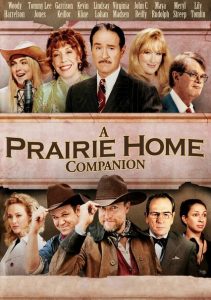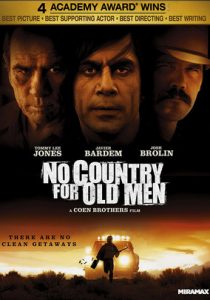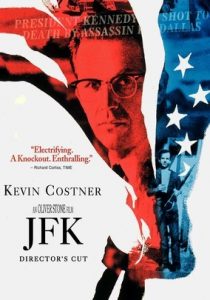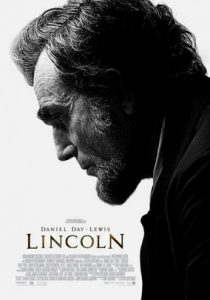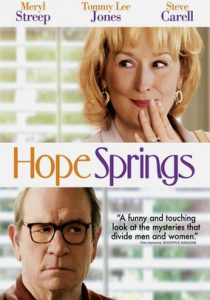A Prairie Home Companion-2006
Director Robert Altman
Starring Meryl Streep, Kevin Kline, Woody Harrelson, Lily Tomlin
Scott’s Review #1,033
Reviewed June 16, 2020
Grade: B
The final film by legendary and influential director Robert Altman is not his greatest work. If I were to compare A Prairie Home Companion (2006) to another of Altman’s pictures it would be Nashville (1975) both having grassroots entertainment similarities.
The latter combines satire amid a political rally in a southern city while the former celebrates behind-the-scenes events at a long-running radio show in Minneapolis.
Difficult to criticize anything a genius does, my expectation was much more than was given.
The film plods along with little excitement or juiciness ever happening so the experience is to enjoy the standard Altman fixtures like a huge cast, overlapping dialogue, and witty chatter.
A melancholy effort since no new material will ever be released by the cinema great, but a chance to celebrate his achievements all the same.
Set in present times, events take place in Saint Paul, Minnesota, a chilly city in the United States mid-west. A long-running live radio variety show, A Prairie Home Companion, prepares for its final broadcast.
The radio station’s new parent company has scheduled the show’s home, the storied Fitzgerald Theater, for demolition and dispatched “the Axeman” (Tommy Lee Jones) to judge whether to save the show. Prospects are grim as radio shows are deemed a thing of the past and irrelevant.
The many radio stars revel and reminisce in memories as they prepare for cancellation.
Led by the singing Johnson Girls, Yolanda (Meryl Streep) and sister Rhonda (Lily Tomlin), and daughter Lola (Lindsay Lohan) who are most prominent, other characters include cowboy duo Dusty (Woody Harrelson) and Lefty (John C. Reilly); pregnant PA Molly (Maya Rudolph) and the show’s creator and host, Garrison Keillor.
A spirit known as “Dangerous Woman” (Virginia Madsen) also joins the group.
Star power is not the issue here and it pleasing is to witness a bevy of A-list Hollywood stars duke it out for screen-time. Anyone possessing knowledge of Altman knows that he was an actor’s director, meaning he let his actors truly shine and interpret what the motivations of the characters were.
Garrison Keillor, who wrote the piece, follows Altman’s lead in this area letting the cast try and bring to life what is on the written page.
Unfortunately, they fail.
While meandering greatly, A Prairie Home Companion has an earthy and humanistic theater troupe quality. The stars of the radio show are like family and cling to each other for moral support during uncertainty.
This feels nice to the viewer as common compassion is endearing, many of the individuals have spent decades together. Their stories and experiences resonate warmly, and one can’t help but be sucked into their lives.
The problem with this is that the stories go on and on and quickly seem pointless. There is little doubt whether the show will close. While the people are enamoring nothing much really happens in the film and it becomes a bore.
The character interactions lack any energy and do not carry the film in any direction. They merely are what they are.
I can appreciate a slow build if there eventually is a payoff. A Prairie Home Companion (2006) never achieves full-throttle or hits the gas pedal so the film exists but doesn’t shine.
With masterpieces such as The Long Goodbye (1973), Nashville (1975), and 3 Women (1977) my expectations were soaring so that may be a part of my letdown.
Prairie Home is not included in my go-to catalog of Altman greats and would teeter at the bottom of a master ranking of his films.
Independent Spirit Award Nominations: Best Director-Robert Altman
